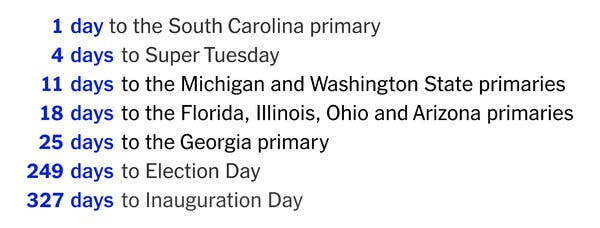
Drew AngererGetty Images
Attorney General William Barr continues to fulfill his late-career goal of becoming every wingnut’s dream AG. Not only is he gaming the impeachment inquiry into his boss’s conduct, Barr also is delivering himself of his opinions on the death of Jeffrey Epstein, the distraction of choice for discerning Trumpists. His Department of Justice also is preparing for wide release the Justice Department inspector general’s report on the “origins” of the probe into the Trump campaign’s relationship with the Russian ratfckers. (We may have had a bit of a preview of how that’s going to go already.) And Barr is very hot for the federal government to get busier at the job of killing people. However, a federal judge threw the brakes on that Wednesday night. From the Washington Post:
This escalating court battle over the federal death penalty comes as the Trump administration is forcefully countering national trends in capital punishment, scheduling multiple lethal injections at a time when executions have been declining. In her order, U.S. District Judge Tanya S. Chutkan of the District of Columbia wrote that she was issuing a preliminary injunction to prevent the inmates’ executions while their legal challenges play out after concluding they were likely to succeed in arguing that the new lethal injection procedure “exceeds statutory authority.”
Lethal injection, the latest development in the “humane” way for the state to kill people, has become a mess. Drug companies won’t deliver drugs if they believe they’ll be used in executions. States are improvising with grotesque and tragic results. According to Judge Chutkin’s order, that’s the trail that Barr wants the federal government to go down as well.
When the Justice Department announced in July that it would resume executions, the department also said Attorney General William P. Barr had ordered officials to adopt a new lethal injection protocol using a single drug — pentobarbital — rather than the three-drug combination previously in place. Chutkan, who was nominated by President Barack Obama, wrote that creating a single procedure for all federal executions “very likely exceeds the authority provided by the” Federal Death Penalty Act. She wrote that under that act, federal executions must be carried out “in the manner prescribed by the law of the State in which the sentence is imposed.”
The DOJ undoubtedly will appeal. Barr is nothing if not persistent in his desire to maximize the power of the federal executive, but only when that branch is led by Republicans. He’s more than ready to start greasing up the gears in what the late Justice Harry Blackmun called “the machinery of death.” And, if the lawyers for the inmates are right, Barr may not wait for the courts to make a call before firing up that machinery.
Shawn Nolan, an attorney for some of the inmates, said the government was “trying to do an end-run around litigation” when it set the execution dates and announced a new protocol. He said they had expected the government to appeal. “We are hopeful the judge’s very thoughtful and well-reasoned opinion will stand up on appeal,” Nolan said in an interview. Chutkan’s decision “was decided on straightforward grounds,” said Robert Dunham, director of the Death Penalty Information Center. “There is a federal statute. The language of the statute is clear. What the attorney general did exceeded the language of the statute,” Dunham said.
There simply is no way to make a death penalty compatible with the unique protections for defendants baked into our system of justice. Any attempt to do so will be clumsy and obvious at best, and cruel and unusual at the worst. That’s why Harry Blackmun finally gave up trying to square the two. That, unfortunately, is why Bill Barr wants to speed up the machinery of death about which Blackmun warned us. Only one of these two positions makes sense.
Respond to this post on the Esquire Politics Facebook page here.
Charles P Pierce is the author of four books, most recently Idiot America, and has been a working journalist since 1976.

